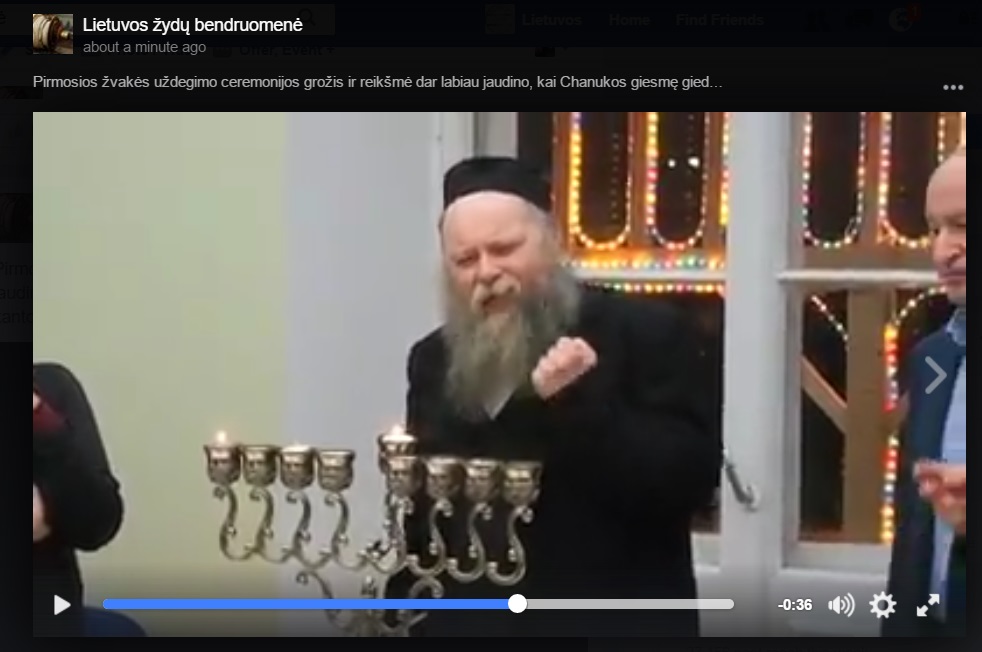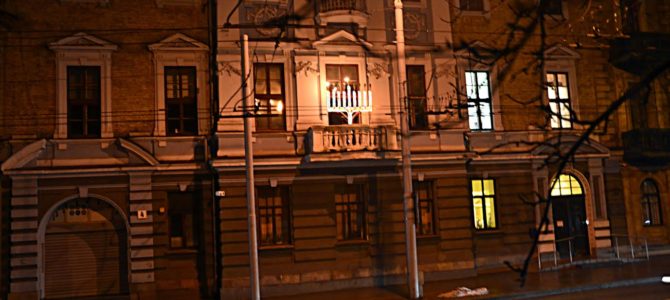
Israel’s ambassador to Lithuania Amir Maimon and Lithuanian Jewish Community chairwoman Faina Kukliansky lit the first Hanukkah candle on a menorah on the balcony of the Community building in Vilnius Saturday night. Vilnius Choral Synagogue cantor Shmuel Yatom added to the beauty and dignity of the ceremony with his performance of a hymn.
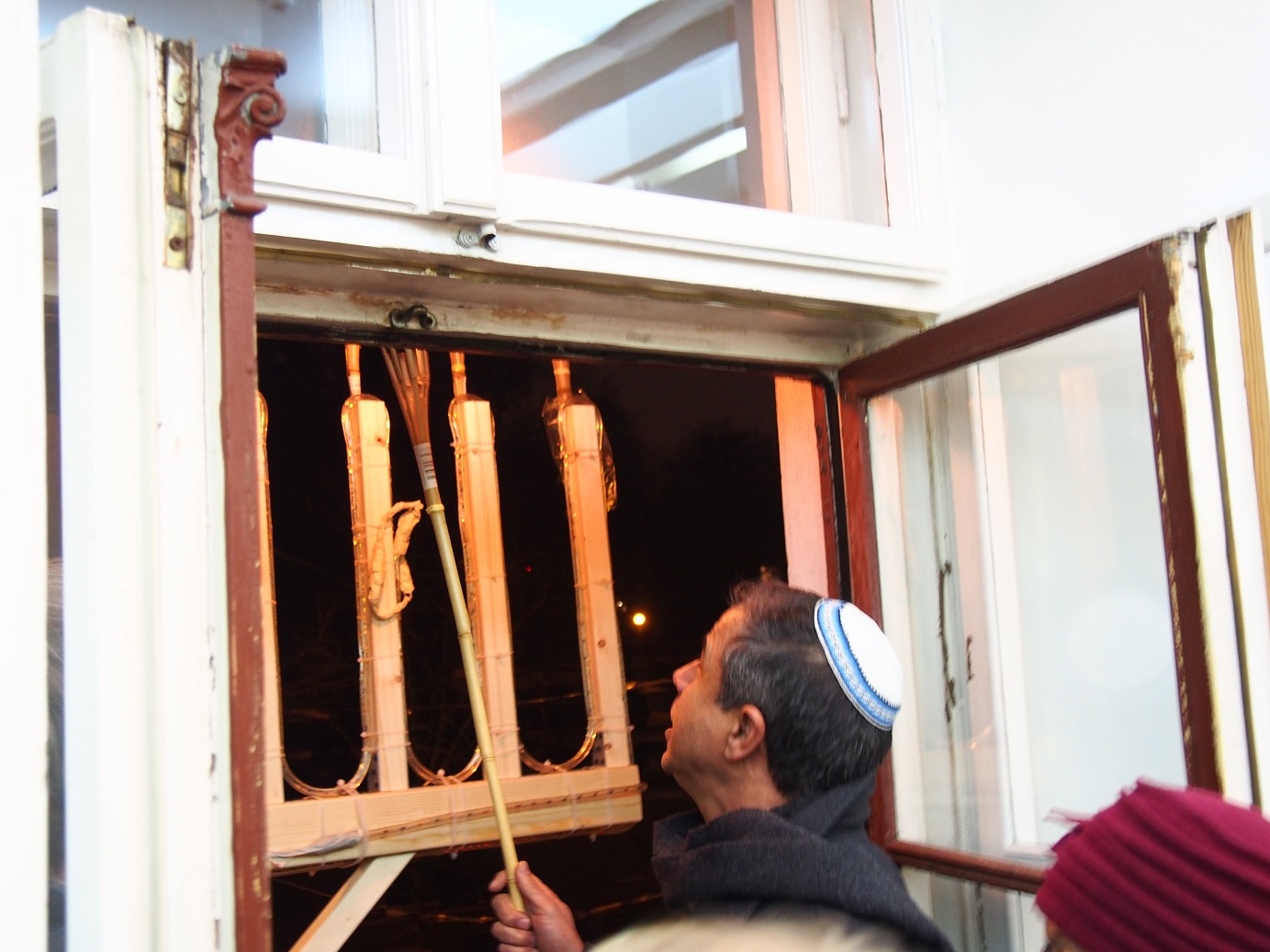
Saturday evening, December 24, marked the beginning of the Hanukkah holiday. Hanukkah is always celebrated for eight days, beginning on the 25th day of Kislev on the Jewish calendar. The word itself is often explained as coming from a root for inauguration, consecration and dedication.
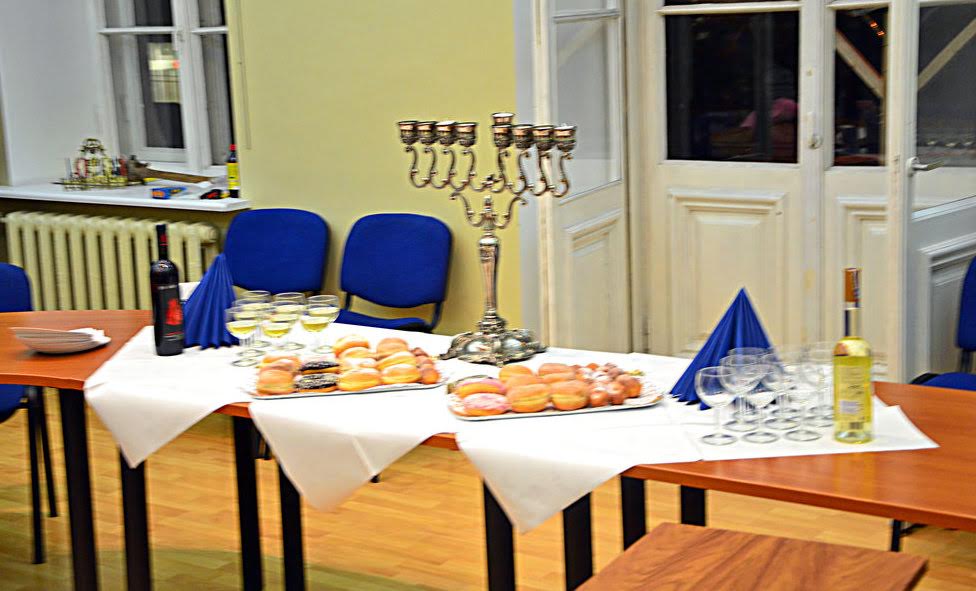
These themes are central to the story of the reconsecration of the Temple in Jerusalem. The holiday begins with the lighting of a candle or oil lamp and one additional light is lit on each successive day. The Talmudic scholars in explaining how to celebrate the holiday place emphasis on spiritual rather than military victory, namely, the reconsecration of the Temple. For Jews the holiday isn’t just about a military victory, it’s about the victory of faith against force, of the light of the spirit against the darkness of oppression, of Judaism against its persecutors, and of monotheism against paganism.
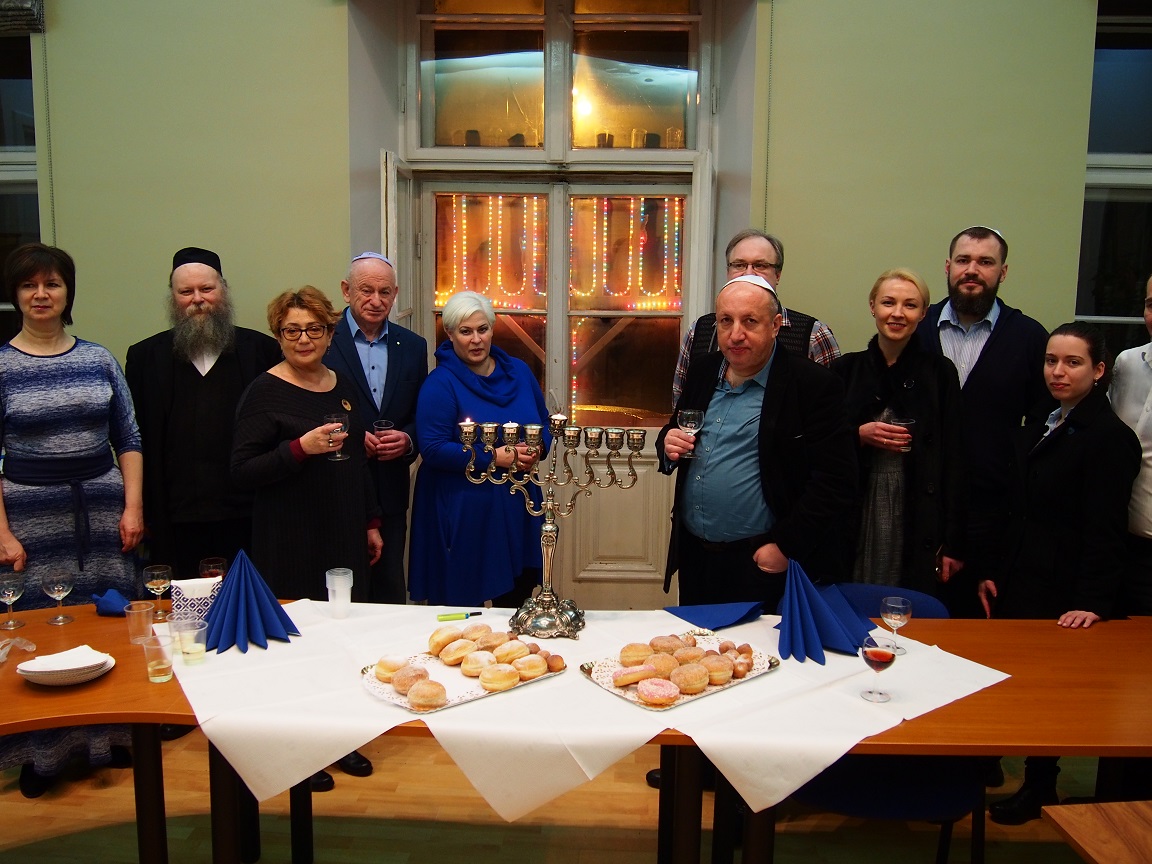
The Talmud tells the story of how in the Temple in Jerusalem, desecrated by the invader, a single jar of olive oil was left for lighting the Menorah. This oil lasted eight days until new oil was delivered. The legend tells the story of the spiritual victory of the people who worship God continuously and remain faithful to Him. Hanukkah, also known as the Festival of Lights, ritualistically features this as its main aspect. Just as the Menorah in the Temple remained lit for eight days, so the holiday, too, lasts for eight days.
§§§
When light overcomes darkness…


